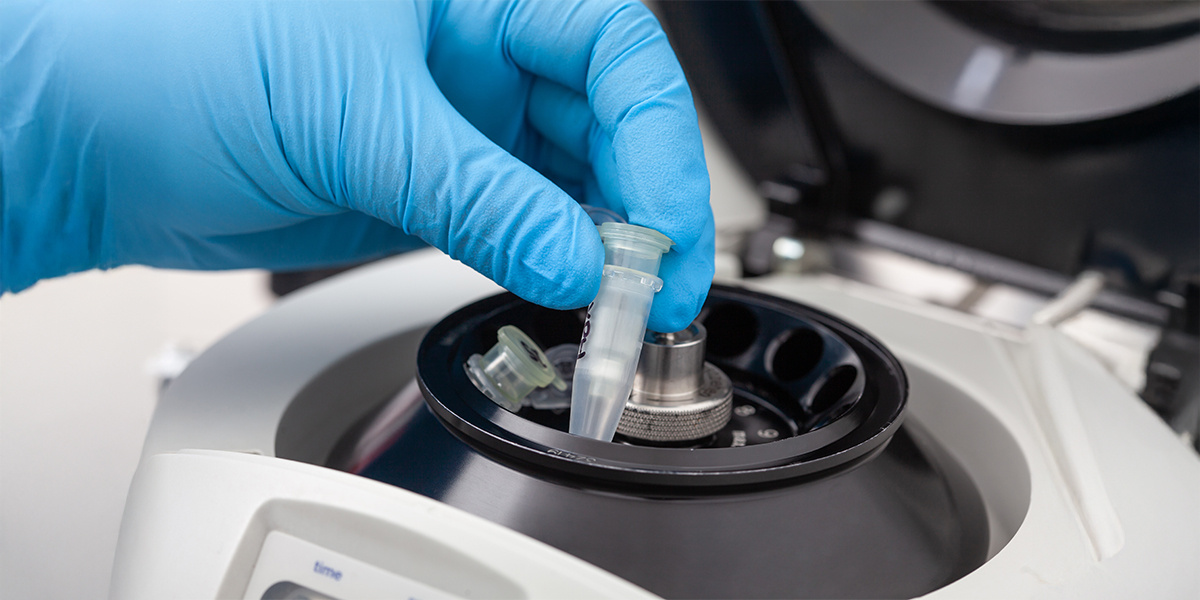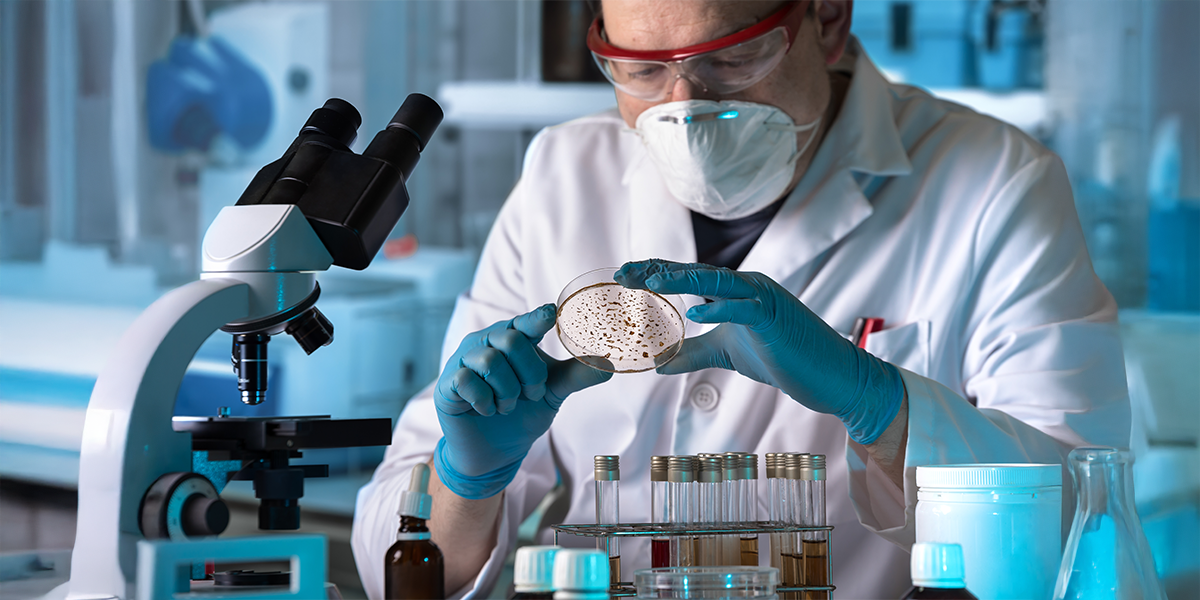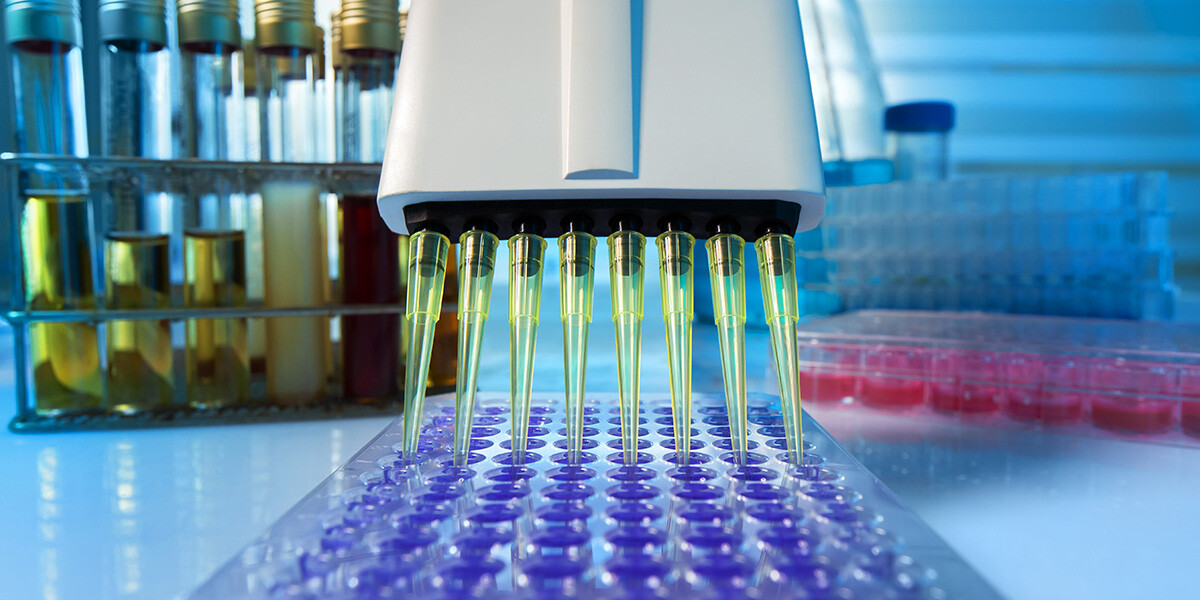Selecting a Pump for Nucleic Acid Sample Preparation
Key Takeaways: For nucleic acid sample preparation pumps, chemical compatibility is critical—Fluid Metering’s CeramPump® technology resists harsh...

As genomic applications become more advanced, engineers are being tasked with finding fluidic solutions that dispense microliter or nanoliter volumes of liquids accurately and consistently. In this blog, we will discuss genomics and guide you in selecting an OEM pump that can meet the stringent requirements of the application.
What is Genomics?
Genomics is a branch of molecular biology that focuses on the study of genomes, the complete set of genes within an organism. It involves the sequencing and analysis to understand its structure, function, and evolutionary history. Genomics has revolutionized various fields, including medicine, biotechnology, and agriculture, by providing insights into genetic diseases, drug development, and crop improvement.
What is Microdosing?
Microdosing involves the dispensing of minute volumes of fluid, typically in the range of microliters or even nanoliters. This technique is crucial in many biotechnology applications, where precise amounts of reagents, drugs, or other substances need to be administered or processed. Microdosing allows for high precision and accuracy, reducing waste and enhancing the efficiency of experiments or treatments.
Why Do Genomics Applications Require Microdosing Precision Pumps?
In genomics applications, microdosing precision pumps are essential for accurate and repeatable delivery of reagents and samples. Techniques such as DNA sequencing, gene editing, and Polymerase Chain Reaction (PCR) require precise volumes of reagents to be dispensed. Any variation in the dispensed volume can significantly affect the accuracy and reliability of the results. Therefore, microdosing precision pumps play a critical role in ensuring the success of genomics applications.
What Pump Qualities are Important for Genomic Devices?
When selecting a pump for genomic devices, several qualities are important. First, the pump should offer high precision and accuracy to ensure consistent microdosing. Second, the pump should have a high degree of chemical compatibility to prevent any reaction with the reagents used. Third, the pump should be capable of maintaining a stable flow rate, even at low volumes. Finally, the pump should be reliable and durable, capable of withstanding the demanding conditions of genomics applications.
What Fluid Metering Pump Would You Recommend for Microdosing?
Fluid Metering’s TRYTON™ Pulseless Nanoliter pump is the ideal pump for microdosing since it provides sub-microliter dispense volumes. With only three moving parts and a custom anti-backlash mechanism, the TRYTON can consistently dispense precise amounts of fluids. This gives manufacturers and engineers confidence that their instrument can be easily maintained.
Supporting Engineers Through Application Development
By partnering with Fluid Metering, you have the opportunity to collaborate closely with fluidic experts that understand the importance of finding a solution. For over 60 years, we have manufactured OEM pumps that can deliver reliable and accurate results for your specific requirements. If you would like to discuss an upcoming genomics project with us, please contact us today.

Key Takeaways: For nucleic acid sample preparation pumps, chemical compatibility is critical—Fluid Metering’s CeramPump® technology resists harsh...

1 min read
Key Takeaways: For microbiology analyzer pump selection, accuracy, sterility, and chemical compatibility are essential—Fluid Metering’s FENYX® and...

1 min read
Key Takeaways: For PCR and ddPCR pump selection, Fluid Metering’s FENYX® Variable Dispense Pump offers precise flow control, low pulsation, and...